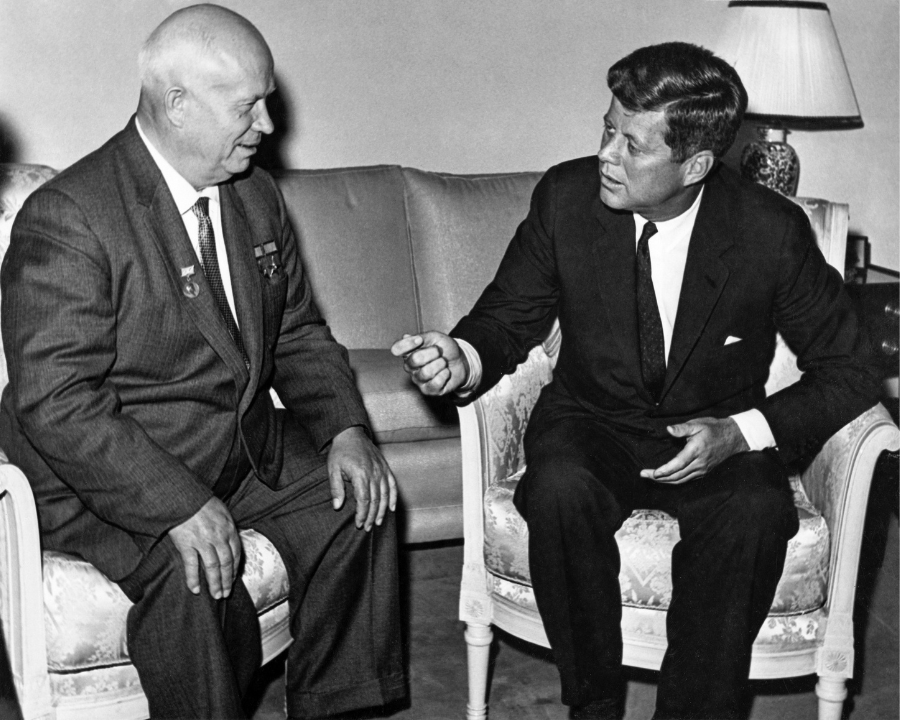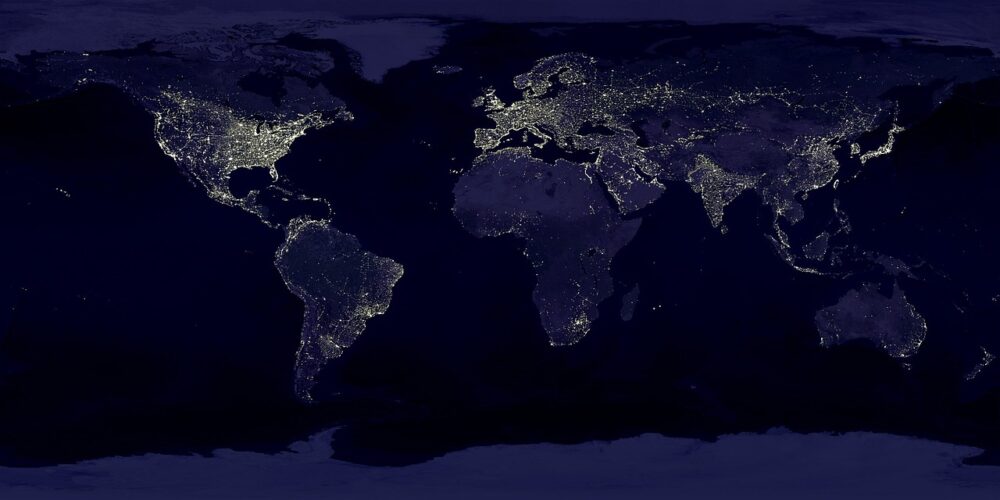
I was hesitant to write this post at first, but I’m slowly mastering the art of not caring. In 1962, the world was on edge as the United States and the Soviet Union confronted each other over the placement of missiles in Cuba, terrified of potential nuclear conflict. This was an interesting time, to say the least, and more than worthy of note in global affairs. Instead of reacting with force fueled by tension and fear on both sides, leaders decided to take a different approach. They talked.
President Kennedy and Premier Khrushchev engaged in direct communication, discussing both their concerns and aims. This dialogue helped them grasp each other’s perspectives and find common ground despite the intense pressure and critical circumstances. Kennedy then admitted how much he had learned through their meeting.
Their willingness to communicate openly and honestly was crucial in avoiding a potential global catastrophe. Through informal communication channels and other communication channels used by governments and diplomats to facilitate discussions and negotiations, they navigated the crisis and sought out alternatives to military action. Finally, they reached a peaceful resolution, with both sides agreeing to remove missiles from Cuba and Turkey, respectively.
Why do I want to bring this up? Well, we can all agree that The Cuban Missile Crisis served as a powerful example of how effective communication can be in diffusing tensions and preventing conflicts, especially in the face of war and global nuclear threats. It highlights the importance of dialogue, understanding, and compromise in maintaining peace and stability on a global scale. By making effective communication a top priority, leaders can find peaceful solutions even in the most dangerous and complex circumstances, ensuring the safety and security of people everywhere.
Fear, Differences, and Communication | Old Narratives that Don’t Work

A lack of communication is a recipe for disaster. If we observe our personal relationships, without effective communication, they certainly won’t thrive. But on the contrary, as we have experienced it or observed it in others, it only leads to failure and the breaking apart of relationships. And often, not in the most pleasant ways. The more fearful we become, the more paranoid we become of our differences, whether political or religious, forgetting what brings us together as humans rather than what tears us apart. We forget that despite our differences, we all want the same thing. And that is safety and security first and foremost.
Most of us are still prisoners of our own minds. Yes, some of us continuously work through these fears consciously as we strive to better ourselves every day by raising our consciousness and awareness. But more often than not, our fears take over. In survival mode, we completely lose sight of our rationale, our sanity, and our confidence in ourselves and fall back into old patterns, old ways of trying to make things work because they feel familiar and because new ways are too risky for the comfort zone of our own little prison, our own fears inside our minds.
Our differences are not to be dismissed or negated. This is another recipe for disaster, especially in regard to global affairs. And it is true not only in interpersonal relationships, whether familial or romantic but even with ourselves. This is simply another form of gaslighting because you are negating not only the experience of another and their perspective but also that same perspective to be integrated within yourself, which stems from deep wounds related to trust.
Fear is at the root of it all. When our differences in opinions and views become core to our self-concept, it becomes even harder to regain a sense of connection to our own boundaries and intuition because we are operating mainly from a place of fear and not love and conscious integration.
Gaslighting | Global Affairs

If you have never heard of the term gaslighting, it is defined as manipulating somebody to make them question their own reality or sanity in order to gain something personally. This happens not only within interpersonal relationships but also with different institutions and organizations. Everyone lies on occasion, and if they are met with evidence, they will usually be influenced to tell the truth.
A classical gaslighter will manipulate another in a relationship in order to have their needs met when they refuse to admit that they’re wrong about something, or that they made a mistake, or acted a certain way, and so forth. They will deny the actual truth by saying I never said that, that never happened, I never called you that, or I never did this or that. When this happens repeatedly, it will affect the person who is being gaslit on a subconscious level, and it will break the trust they have in themselves and in reality itself. This is a very unsafe space for someone to be in, and it is especially dangerous when one is brought up in an environment where, during childhood, they are constantly gaslit.
Gaslighting happens especially in abusive relationships, but it also mirrors the relationship between common folk and governments, between leaders and global affairs, different organizations, etc. Mind substance is malleable, and anything we are exposed to repeatedly over time has the capacity to program us and cause distrust in ourselves and reality.
So if someone is constantly gaslighting you even when they are met with evidence and telling you that your truth is wrong, your reality is wrong, and that it never happened, etc., it will have a profound impact on your sense of self, sense of boundaries, and sense of personal truth and intuition. And it will also cause a person to start gaslighting themselves. Fear will be the constant motivator in how they move because of such a fragmented sense of self.
If you find yourself saying, oh, maybe they are right, maybe I’m the crazy one in this experience, maybe that didn’t happen, what this does is that it damages your relationship to your own truth, and if you begin to self-doubt and distrust yourself repeatedly over time, you will, as a result, distrust your own feelings, distrust your own needs, distrust your own boundaries and it will continuously make you feel that you have to shrink away and play small and that your perspective and experience of things is invalid in the world. This programming causes most people to not know who they are and what the truth is in their lives and in their world, and this has a massive impact on one’s sense of self and self-identity.
Conscious Integration of Perspectives | Global Affairs

To have a conscious integration of different perspectives is a choice. And that choice is first made when we confront ourselves and our own fears and practice the art of surrender. What Kennedy taught us during the Cuban Missile Crisis is that sometimes, we can benefit from a willingness to surrender control and open ourselves to something new, even when it is painful and scary. Yes, we can’t deny that all systems come with their own complexities, and differences in history, opinions, etc., don’t make it any easier, but to have somewhat enlightened leaders in today’s political world would truly be a miracle.
Personally, I like to advocate for younger leaders, and I hope that younger politicians will show some interest in global affairs. We need people who have a natural disposition based upon constructive reactions to circumstances or at least learned it through living. And no, these are not the kind of people who never suffered. These are people to whom suffering was a maturing power for power, not a rotting one.
And even if so, to expect perfection from anyone would obviously be unreasonable, but to expect new solutions toward a more harmonious world, especially during such conflicts, may not be all that senseless after all. And it’s our responsibility to become those people as well as fight for those who would be a better fit in the political sphere. Old narratives, old ways, and a tough approach, while they feel safe and familiar, are often not conducive to peaceful resolutions.
So, I hope that we can learn from our past and set our egos aside. Learn from the good and the bad, work together, and listen to each other without negating one or another perspective. From an esoteric understanding, all perspectives are relevant as a whole, and they all contain a truth inside them that contributes to a harmonious system that keeps the earth moving. As above, so below.

